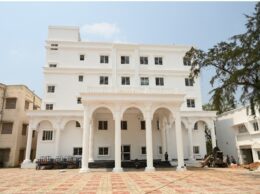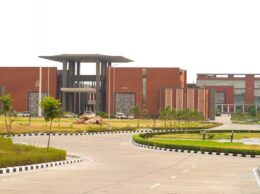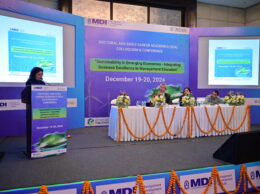Varanasi : The novel coronavirus disease 2019 (COVID-19) has transformed the way of social interactions and has posed severe challenges to our healthcare measures. The World Health Organization (WHO) has released several protocols to curb the spread of COVID-19 and its impact on the global population, including social distancing and wearing masks. In addition, the WHO has also suggested avoiding mass gatherings. The WHO defines a mass gathering as any public event which includes an assembly of people who have the potential to spread the infection. It has also been seen in the past that the mass gatherings have coincided with other disease-causing pathogens, e.g. the 2009 pandemic influenza A (H1N1) or the Middle East respiratory syndrome-related coronavirus (MERS-CoV) and the 2013 Middle East respiratory syndrome (MERS) outbreaks. However, the exact role of such mass gatherings in disease transmission and spread has not been fully documented. While studying the temporal and spatial spread of the Alpha variant (B.1.1.7) in India, a team of fifteen scientists from seven institutions worldwide have found an unusual spike of Alpha variant-mediated Covid-19 cases in Punjab associated with limited founder events and rapid starlike expansions.
In December 2020, the Alpha variant of the SARS-CoV-2, designated as a variant of concern (VOC) by the WHO, was discovered in the south-eastern United Kingdom (UK). Slowly, it expanded across India, with many cases, particularly in North India. The team has analysed the genomic sequences of the 3085 Alpha variant from India. This result was published in the scientific journal ‘MDPI-COVID’.
‘Multiple entries of Alpha variant was observed with its major presence in Northern India’ said Jahnavi Parasar, the study’s first author.
The spread of the Alpha variant in India was associated with three different timelines, with a significant presence of most branches in Delhi, Chandigarh and Punjab. Notably, except for three branches, all the observed branches (44) of the Alpha variant in India were present in Delhi, Punjab and Chandigarh.
Prof. Gyaneshwer Chaubey, Dept. of Zoology, who led this study, said “The surge in Punjab did not follow the natural trend as in other states of India. Technically, it was rapid and associated with a few founder events. Also, the samples from Punjab are largely restricted to a few clusters rather than independent lineages. Such founder events were usually favoured over superspreader events, e.g., indoor meetings and large gatherings. Movement of people in large numbers and big gatherings including demonstrations may likely have played a role in rapidly increasing the infection 5-10 times more than normal”.
‘In this study, we provide direct evidence on the question of how large social gatherings spread COVID-19,’ said Dr Rakesh Tamang, Assistant Professor at Calcutta University.
‘Our findings are informative to understand the variant spread and more risk of infection to the people associated with large gatherings’, said Dr Prashanth Suravajhala, the Associate Professor in Amrita Vishwavidyapeetham Kerala.









